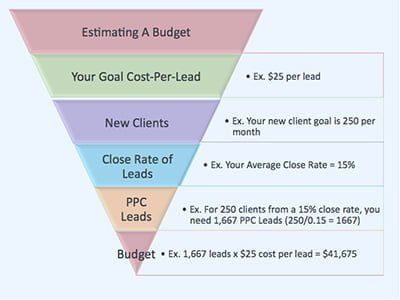
Budgeting Tips for Successful PPC Advertising
- 0
In the world of digital marketing, Pay-Per-Click (PPC) advertising is a powerful tool to drive traffic to your website and increase sales. However, without proper budgeting and management, your PPC campaigns can quickly become a money drain. To ensure success with PPC advertising, it is essential to carefully plan your budget and optimize your spending. Here are some tips to help you make the most out of your PPC budget:
Set Clear Goals
Before you start running PPC campaigns, it’s crucial to define your goals. Are you looking to increase website traffic, generate leads, or drive sales? Having clear objectives will help you determine how much you should be spending on your PPC campaigns and where you should allocate your budget.
Understand Your Costs
When budgeting for PPC advertising, it’s essential to consider all costs involved. In addition to the cost-per-click (CPC) for your ads, you need to account for other expenses such as ad creation, landing page design, and tracking tools. Understanding your total costs will help you set a realistic budget and make informed decisions about where to invest your money.
Track and Analyze Performance
To optimize your PPC budget, you need to constantly monitor and analyze the performance of your campaigns. Use tracking tools like Google Analytics to measure key metrics such as click-through rate (CTR), conversion rate, and return on investment (ROI). By analyzing this data, you can make data-driven decisions to allocate your budget more effectively to high-performing campaigns.
Test Different Strategies
PPC advertising is not a one-size-fits-all solution. To find what works best for your business, it’s crucial to test different strategies and tactics. Experiment with different ad copy, targeting options, and bidding strategies to see what delivers the best results. By testing and iterating on your campaigns, you can optimize your budget and maximize your ROI.
Focus on Quality Score
Quality Score is a metric used by Google Ads to evaluate the relevance and quality of your ads. The higher your Quality Score, the lower your CPC and the higher your ad position. By focusing on improving your Quality Score, you can increase the efficiency of your PPC campaigns and get more bang for your buck.
Optimize Landing Pages
Your landing pages play a crucial role in the success of your PPC campaigns. A poorly optimized landing page can drive up your costs and decrease your conversion rates. Ensure that your landing pages are fast-loading, mobile-friendly, and aligned with the ad copy. By optimizing your landing pages, you can improve your Quality Score and boost your ROI.
Monitor Competition
Keep an eye on your competitors to stay competitive in the PPC landscape. Monitor their ad copy, keywords, and bidding strategies to identify opportunities and threats. By understanding what your competitors are doing, you can adjust your own campaigns to stay ahead of the game and make the most out of your budget.
Allocate Budget Wisely
Finally, it’s essential to allocate your budget wisely across different campaigns and ad groups. Focus on high-performing campaigns that drive results and consider scaling up your budget for these campaigns. At the same time, don’t be afraid to cut spending on underperforming campaigns that are not generating the desired results. By allocating your budget strategically, you can make the most out of your PPC advertising efforts.
In conclusion, successful PPC advertising requires careful budgeting, monitoring, and optimization. By following these tips and best practices, you can make the most out of your PPC budget and drive meaningful results for your business. Remember to set clear goals, track performance, test different strategies, and optimize your campaigns to maximize your ROI. With the right approach, PPC advertising can be a powerful tool to grow your business and reach your target audience effectively.

